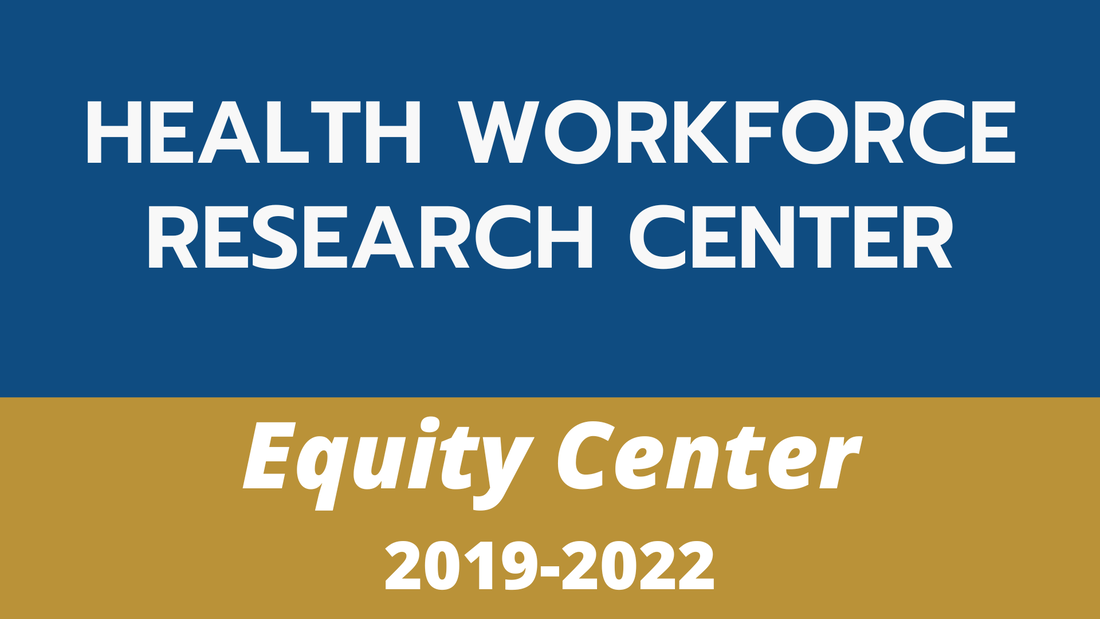You are here: Home >> Research >> Health Workforce Research Centers >> Equity in Health Workforce Education & Training >> 2022 Completed Studies
2022 Completed Studies
|
Developing a Systems-oriented Theory of Change for the Social Mission of Health Professions Education
A prior HRSA-funded study on advancing social mission research found a lack of a clear definition around what constitutes social mission in health professions education, wide heterogeneity in outcomes and metrics, and little specificity on how the expected impact of social mission-related activities would advance health equity. A social mission logic model could address these limitations by clearly illustrating consensus-based social mission inputs, outcomes, and the pathways by which health professions education may contribute to health equity. We believe its development is a necessary step toward accelerating and aligning stakeholders and resources to advance social mission research and lead toward a better understanding of how social mission activities contribute to the creation of a health workforce primed to advance health equity. Related Products: For questions about this study, contact Clese Erikson. Predicting Systems-Based Practice Performance: Correlations Between Medical School Social Mission Scores and Competency Assessments in Residency
Since 2013, the Accreditation Council for Graduate Medical Education (ACGME) has used Systems-Based Practice (SBP) Milestones across medical specialties to measure resident physicians’ competence in working within health systems, including understanding and addressing health disparities and upstream factors that impact health. Ensuring resident competency in SBP is integral to HRSA's goal of fostering a health care workforce to address current and emerging needs. Many medical schools are increasing their uptake of social mission, which includes preparing their graduates to address health equity and incorporating health systems science curricula and programs. However, little is known about how these factors impact graduates applied skills in systems-based practice once they graduate. This exploratory study aimed to assess whether the social mission-orientation of a medical school predicts its graduates’ performance on systems-based practice milestones in residency. Related Products:For questions about this study, contact Sonal Batra. Public Health workforce diversity: the role of academic institutions
COVID-19 brought to the surface existing structural racism that has left gaps in access to care and health outcomes, disproportionately affecting racial and ethnic minority groups. To address racial and ethnic disparities in health outcomes, it is important to have a racially and ethnically diverse workforce that can address such public health issues. This study was designed to understand the relationship between school characteristics and the diversity of the public health workforce pipeline. Findings will create transparency through an evidence-driven analysis of the current state of public health education and identify opportunities for public health schools and programs to reflect upon their roles in contributing toward a diverse and equitable public health workforce. Related Products:
For questions about this study, contact Anushree Vichare. The Role of Community Colleges in Health Professions Diversity
Community colleges (CCs) have long been noted as an important pathway for increasing the diversity of health professions as they are an important entry point to post-secondary education for low-income, minority and rural students. This study built on prior work to examine the contribution of community colleges to diversity other health professions that require advanced degrees, including occupational therapy (OT), physical therapy (PT), pharmacy, and dentistry. The study also examined associations between state investments in community colleges and cost of attending CCs and the diversity of health professions graduates in the state. Related Products: For questions about this study, contact Clese Erikson or Leah Masselink. Increasing Degree Requirements Decreased Diversity of Physician Assistants and Physical Therapist Graduates
On average, health professions that require a higher level of education have lower levels of under represented minorities. There has been little if any research as to whether the diversity of new entrants to a health profession falls when degree requirements are increased (e.g., from a master’s to a doctoral degree). This information could inform current debates about whether to increase the minimum entry degrees further, for example, for from the masters to doctoral level for physician assistants and nurse practitioners. This study addresses this gap. Related Products: For questions about this study, contact Edward Salsberg. |
-
Disclaimer
<
>
These projects were supported by the Bureau of Health Workforce (BHW), National Center for Health Workforce Analysis (NCHWA), Health Resources and Services Administration (HRSA) of the U.S. Department of Health and Human Services (HHS) as part of an award totaling $450,000, with zero percent financed with non-governmental sources. The contents are those of the author[s] and do not necessarily represent the official views of, nor an endorsement by HRSA, HHS, or the U.S. Government.

